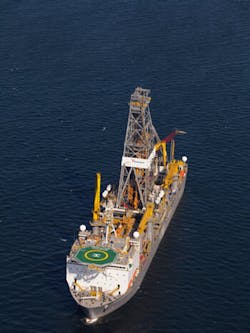Transgaz awards pipeline contract as OMV Petrom reaches Neptun Deep FID
Romanian-state Transgaz SA has awarded a construction contract for the 188-mile Tuzla-Podisor pipeline to Turkey-based Kalyon Insaat Sanayi Ve Ticaret AS. The 1.45-bcfd pipeline will connect Romania’s national gas transmission system and the Bulgaria-Romania-Hungary-Austria (BRUA) pipeline corridor to anticipated Black Sea production. Gas is expected to enter the system in 2027.
Earlier this year, Transgaz, OMV Petrom SA, and SNGN Romgaz SA booked capacity on the pipeline (OGJ Online, Mar. 17, 2023). OMV Petrom made a positive final investment decision on its Neptun Deep gas field in the Black Sea and has a June 22 online conference scheduled regarding the project (OGJ Online, June 21, 2023). It will develop the field and pipeline with Romgaz and Transgaz respectively.
Neptun Deep has an area of 7,500 sq km about 160 km from the shore, in water depths ranging between 100 and 1,000 m. OMV Petrom operates the project in a 50-50 partnership with Romgaz.
In December 2022, the partners submitted a declaration of commercial discovery for the field’s Domino and Pelican South reservoirs to Romania’s National Agency for Mineral Resources, having begun exploration in 2008. The companies approved their development plan earlier this month.
Infrastructure required for the development of Domino and Pelican South includes 10 wells, 3 subsea production systems and associated flow lines, one offshore platform, the main gas pipeline to landfall at Tuzla, and a gas measurement station.
Neptun Deep is the largest natural gas project in the Romanian Black Sea and the first deepwater offshore project in Romania. OMV Petrom expects to extract roughly 100 billion cu m of gas over the project’s lifetime, which it says will make Romania the largest gas producer in the European Union.
The company says the platform will generate its own energy and that the entire infrastructure will be operated remotely, through a digital twin. It estimates development costs at up to €4 billion ($4.39 billion).
About the Author
Christopher E. Smith
Editor in Chief
Chris joined Oil & Gas Journal in 2005 as Pipeline Editor, having already worked for more than a decade in a variety of oil and gas industry analysis and reporting roles. He became editor-in-chief in 2019 and head of content in 2025.

